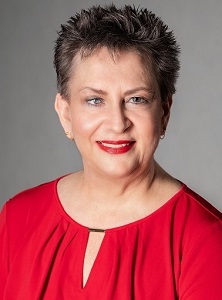Communication specialists, relationship counsellors, and other experts always tell us to “engage in active listening” to better connect with our partners, children, bosses, and just about anyone else.
But what is active listening, and how can we become better at it?
Active listening requires that the listener fully concentrate, understand, respond and then remember what is being said by another person. Here’s how to do it.
Let’s break it down into non verbal cues, verbal cues/behaviours, and strategies, as follows.
Non Verbal Cues
- Look interested;
- Maintain eye contact;
- Face the person directly;
- Sit upright, but be comfortable;
- Nod occasionally to indicate that you are listening;
- Try to put your feelings/reactions on hold until you hear the other person out;
- Monitor your facial expressions so that you don’t convey disagreement, irritation, or negative emotions until you hear the person out (you can react later).
Verbal Cues / Behaviours
- Ask questions:
-
- To clarify and to show that you are truly trying to understand; and
- To summarise (“What I hear you saying is ________, is that correct?”).
- Don’t change the subject or stray off-topic.
- Focus on what the other person is saying (you will get your turn later).
- Summarise what you heard.
Strategies
- Be fully attentive and other-focused (all too often listeners stop really listening and try to formulate what they are going to say instead);
- Imagine that you are an interviewer or journalist and you are trying to get all of the facts straight;
- Observe the speaker’s body language and facial expressions. Try to understand both what the other person is saying and how they are saying it. What emotions are they feeling and expressing (or trying to conceal)?
Active listening is not easy. It takes a great deal of practice and can sometimes be taxing.
What’s the Payoff?
Clearly, being a better listener improves your communication skills, builds high-quality relationships with others, and is a cornerstone of resolving problems.
 Author: Merryl Gee, BSocWk, AMHSW, MAASW, MACSW, MANZMHA, MPACFA.
Author: Merryl Gee, BSocWk, AMHSW, MAASW, MACSW, MANZMHA, MPACFA.
Merryl Gee is a psychotherapist working from a strengths-based, person-centred framework. With over 30 years’ experience, she has a particular interest people who have experienced trauma such as sexual assault or childhood sexual abuse.
To make an appointment with Brisbane Psychotherapist Merryl Gee try Online Booking. Alternatively, you can call M1 Psychology Loganholme on (07) 3067 9129 or Vision Psychology Mt Gravatt on (07) 3088 5422 .